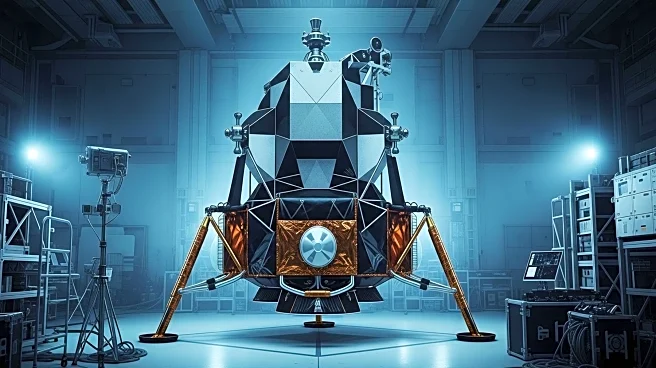What's Happening?
Former NASA Administrator Jim Bridenstine testified before the U.S. Senate Committee on Commerce, Science, and Transportation, expressing concerns about NASA's Artemis program. He warned that the United States is unlikely to land astronauts on the Moon before China due to challenges with orbital refueling and the program's ambitious architecture. Bridenstine highlighted the high costs and sustainability issues with NASA's Space Launch System (SLS) rocket, advocating for its continued use despite its expense. He also noted the lack of a ready Lunar Lander, with SpaceX's Starship HLS and Blue Origin's Blue Moon Mk2 still in development. Bridenstine emphasized the complexity of the program and the risk of falling behind China in the space race.
Why It's Important?
The testimony underscores the strategic importance of the Artemis program in maintaining U.S. leadership in space exploration. The potential delay in lunar landing could impact national prestige and technological leadership, as China aims for its own crewed lunar landing by 2030. The program's challenges highlight the need for sustainable and cost-effective solutions in space exploration. The debate over NASA's strategy reflects broader concerns about innovation versus practical risks in the intensifying space race with China.
What's Next?
NASA and SpaceX are planning an upcoming test involving Starship's in-space propellant transfer, which is crucial for the program's success. The Federal Aviation Administration is finalizing approvals for increased launch frequencies, which could impact the Cape Canaveral area. Lawmakers are considering NASA's future strategy, balancing bold innovation with practical risks. The outcome of these efforts will determine whether the U.S. can overcome hurdles and maintain its leadership in space exploration.









